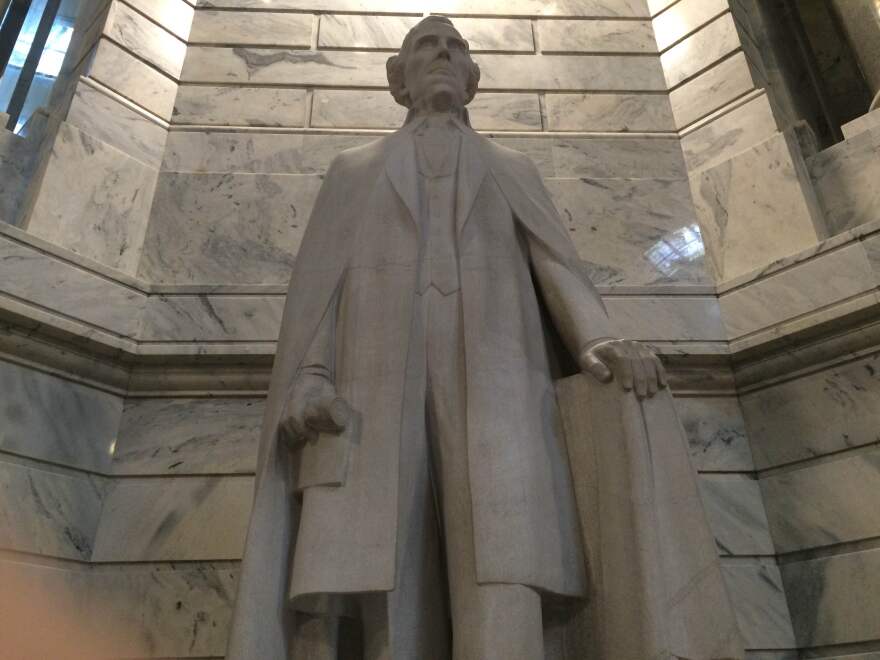Most people know Raoul Cunningham as the president of Louisville’s NAACP chapter. But he also served as the deputy commissioner of the state’s Personnel Cabinet in the 1980s.
And as one of the top human resources officials in state government, he got an oddly thorough knowledge of Kentucky’s state holidays, including the fact that Kentucky law still observes an arcane pair of holidays on June 3: Confederate Memorial Day and Jefferson Davis Day, which honors the Kentucky-born president of the Confederacy.
“The fact that you still put them on a pedestal is more disgraceful,” Cunningham said during a recent interview.
Cunningham points out that state workers don’t get June 3 off, so most Kentuckians don’t even know the holidays exist. But just having the day commemorated in state law sends a message.
“I’m not hurt by them. I am offended by them and resent them,” he said.
Kentucky is among ten states that still honor Confederate holidays. In most places they come and go, unnoticed. But, in others, like Alabama and Mississippi, state workers get the day off.
Cunningham, who was a key player in getting the Jefferson Davis statue removed from the Kentucky Capitol Rotunda, said something as seemingly small as changing a holiday is surprisingly hard.
“I don’t know why, but it’s difficult to get people to change things that were put in probably in the 1930s,” Cunningham said. “If you can’t get your legislators to just remove it - you’re in trouble.”
In Kentucky, a bill has come up multiple times that would remove Confederate holidays. Chad Aull, a Democratic state representative from Lexington led the effort this year. He said in the past, the measure to remove the holidays had some bipartisan support. But this year it didn’t even make it past the first step in the legislative process.
“We could not get it assigned to a committee to even have a hearing,” Aull said.
Aull feels confident the holidays will eventually be removed from the calendar in Kentucky, which – by the way – was never even officially a Confederate state.
Karen Cox, history professor at the University of North Carolina at Charlotte, said the holidays started in the late 19th and early 20th centuries with groups that promoted the “lost cause” myth. The movement attempted to reframe the root causes of the Civil War and though many of those groups are just a fraction of their original sizes, their holidays remain.
“They’re the lost cause leftovers,” Cox said. “Most states don’t officially observe it anymore. For the states that do, it’s a waste of taxpayer money.”
So why do states have such a hard time getting the holidays removed? Cox says it’s simple. It’s an easy way for lawmakers – especially conservatives – to score political points.
“They’re not scoring political points unless someone tries to remove it,” Cox said. “Then they’ll score their political points. As long as nothing is changing, it just sits there.”
Bob Holladay, a history professor in Florida, said if people still feel the need to observe these days, it shouldn’t come across as a celebration .
“I hope they’re very somber about it,” Holladay said. “I don’t know [that there’s] much to celebrate about the Civil War. I hope they’re commemorated as a tragedy, which it was.”






